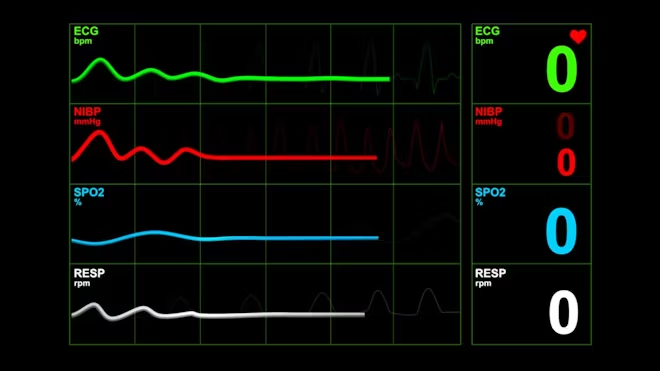What The G Word Tells Us About the Power of Local Elections
Local and National Politics: The Reach of The G Word
In 2022, Netflix teamed up with comedian Adam Conover and former U.S. President Barack Obama to create The G Word, a limited documentary series that uses comedy to educate viewers about the inner workings of the U.S. government. Conover and Obama set out to make government more understandable and relatable to everyday Americans, regardless of political affiliation. The show explains the functions of federal, state, and local government, ultimately emphasizing the often-overlooked power of local governments in shaping our day-to-day lives. This series is great for anyone who sees government as a distant thing operating from Washington, D.C., or from their state capital, not familiar with the influence local governments have on important aspects of life—from school board decisions to public safety.
The G Word talks about a different part of government in each episode, showing both its good and bad points. The show, which was based on Michael Lewis’s book The Fifth Risk. In the book, Lewis discusses the federal government’s part in making life better while also pointing out areas that need reform and accountability.
What is The G Word? Key Episodes and Themes
The docuseries presents a wide range of topics, each with a lesson about government’s role in society. Here are some notable episodes:

Episode 1: Food
Conover talks about the U.S. Department of Agriculture’s (USDA) efforts to keep food safe in this episode. He starts by talking about past problems like foodborne illnesses. The episode goes into detail about how USDA inspectors protect public health and how big agriculture’s pushing has changed dietary guidelines and rules. The episode shows that small farmers aren’t always protected the same way big businesses are. It also shows the pros and cons of having the federal government regulates food. In fact, it was the federal government that came to the aid of farmers due to tariffs against China.
Episode 2: Weather
Conover joins the National Weather Service to show how essential government-backed weather forecasting is for public safety. He even goes storm-chasing, highlighting the accuracy and intensity required to predict severe weather. This episode contrasts the public benefit of free weather information with the profit motives of companies trying to monetize it. This theme resonates with issues around climate resilience and the need for infrastructure that serves the public good over private interests.

Episode 3: Money
This episode introduces the Federal Deposit Insurance Corporation (FDIC), an agency formed after the 1929 stock market crash to protect citizen finances. The FDIC was established in 1933 during the Great Depression, a time of severe economic turmoil. Its creation was a response to the widespread bank failures of the 1920s and early 1930s, which had devastated many depositors and eroded public confidence in the banking system. In short, the Federal Deposit Insurance Corporation (FDIC) is an independent agency of the United States government created to maintain stability and public confidence in the nation’s financial system.
Conover explains how the FDIC protects bank deposits and critiques policies that have allowed large corporations to benefit disproportionately from programs like COVID-19 relief, which often left small businesses without aid. The episode illustrates how government intervention meant to support everyone can sometimes deepen existing inequalities.
Episode 5: Disease
During the episode titled “Disease,” Adam examines the role that the Centers for Disease Control and Prevention (CDC) plays in the management of public health emergencies. He highlights both the triumphs that the CDC has achieved and the obstacles that it faces. He emphasizes the importance of public health activities, which span a wide range of themes, ranging from the response to pandemics to the enforcement of health standards. Conover also brings attention to the fact that political objectives and profit reasons can sometimes be a driving force behind these important endeavors.

This episode is still relevant the continued significance of healthcare and pandemic preparedness in the political environment of today. This episode offers light on the complicated issues that organizations such as the Centers for Disease Control and Prevention (CDC) encounter when attempting to strike a balance between scientific expertise, public trust, political demands, and economic considerations. In the end, his analysis highlights the critical role that organizations such as the Centers for Disease Control and Prevention (CDC) play in protecting public health, while also reiterating the importance of robust public health systems in order to address both existing and upcoming health concerns.
Episode 6: Change
During the last episode, Conover and Obama have a conversation on the difficulties and opportunities associated with reforming the government. They investigate what it takes to bring about genuine change, taking into account the obstacles that are presented by vested interests and the disengagement of the general public. This interaction serves to reinforce the notion that it is vital to have an awareness of the government in order to hold it accountable and exert pressure for improvement.

Relevance to the 2024 Election
As we come out of the 2024 presidential election, The G Word offers a timely lens on issues shaping voter opinions: healthcare, economic inequality, infrastructure, and technological innovation. Here’s how some of these themes tie into pressing issues in the current election cycle:
- Healthcare and Public Health (Episode: “Disease”)
Healthcare remains a hotly debated topic, particularly around cost, access, and government’s role in public health. The “Disease” episode examines these challenges, reinforcing the government’s responsibility in ensuring healthcare access for all, even amid bureaucratic and financial hurdles. - Economic Fairness and Wealth Inequality (Episode: “Money”)
In this episode, Adam discusses how financial protections can sometimes reinforce disparities, echoing current debates about corporate tax policies and the distribution of public funds. The economy was a central to the 2024 race, with VP Harris and now President-elect Trump offering starkly different visions for addressing wealth inequality. - Infrastructure and Climate Resilience (Episode: “Weather”)
As climate events grow more severe, some voters are focused on infrastructure investment. The “Weather” episode shows how weather forecasting and emergency preparedness benefit the public, underscoring the importance of infrastructure and policies that prioritize public safety over profits.
Why Local Elections Matter
While national elections capture the most attention, The G Word reminds viewers that local elections impact everyday life in more direct ways. Local governments oversee schools, zoning laws, police funding, and community events, making decisions that affect everything from the quality of education to public safety.
In Seminole County, Florida, local government decisions shape community events like the annual Martin Luther King Jr. celebration and allocate resources for new public facilities. The school board, too, has considerable influence, especially with debates around curriculum content and book bans. Candidates running for these local positions often hold opposing views on how to educate and empower the next generation, making it essential for residents to stay informed and vote for the future they want.
Lessons from The G Word: Power and Accountability
The series emphasizes that government is most effective when it remains accountable to the people. In local governments, this accountability is more immediate; local officials are often accessible and can be held directly responsible by their communities. The G Word highlights both successes and failures in government, encouraging viewers to exercise their power as citizens to demand transparency, improvement, and responsiveness.
As Dr. Russell J. Dalton, professor of political science at the University of California, Irvine, wrote in a blog post:
“It is not all good news, however. While participation opportunities have broadly expanded, the skills and resources to utilize these new entryways are unevenly spread throughout the public. I describe a sizeable socio-economic status (SES) participation gap across all types of political action. A person’s education and other social status traits are very strong predictors of who participates.”
https://blogs.lse.ac.uk/politicsandpolicy/is-citizen-participation-actually-good-for-democracy/
The Role of Informed Voting
One of the series’ strongest messages is the importance of informed voting. Local elections may seem minor, but their impact ripples outward, influencing state and national trends. A single school board or city council decision can shape policy on larger scales over time, affecting climate action plans, social services, and community values.

The G Word encourages viewers to research local candidates and issues, understanding that informed voting is essential for meaningful civic engagement. Each election offers citizens a chance to make a difference, and this series serves as a reminder of the power every voter holds.
Conclusion
In both national and local elections, voting is a vital tool for shaping our communities and country. The G Word makes government feel accessible and even entertaining, reminding viewers that understanding and participating in governance is a responsibility within everyone’s reach. As we move into another election, let’s take this reminder to heart: staying informed and active in local elections is one of the most impactful ways to contribute to meaningful change.
Reflective Questions
- What specific issues in your local community matter most to you, and how can you use your vote to influence them?
- How do you stay informed about local elections, and what changes might you make after watching The G Word?







